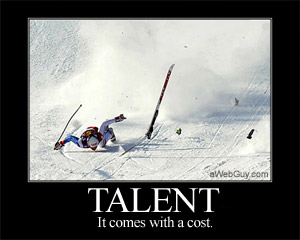
Are you in need of a real bargain for your next website? I have a great deal for you today, and it starts at just $175,000 and $25,000 per month maintenance cost. But wait! There’s more!
It sounds like a great bargain, right? Well, maybe and maybe not.
I wish I had recorded the conversation I had with a woman desperately in need of an answer about website pricing. She just wanted to hear the answer that agreed with her. She did not have any desire at all to hear the right answer. I do have the urgent voicemail message she left for me, and I will include it in the podcast.
Listen Here:
After hearing the voicemail message, I promptly returned her call and she was even more frazzled in real-time. The purpose for her call was that she was frantically seeking some way to sway her business partners from an offer made by a website development company for what she believed was astronomically high. The part she could not answer was why it was too high, or how much too high it was. All she knew was that it was too high, and she wanted ammunition to fire back at the developer and her business partners.
I agreed with her that the $175,000 plus $25,000 was extremely high for a “basic website” or “simple website”. It is funny, but from a customer’s standpoint, they usually are just “very simple”. That is, unless you take them to the mat and have them show you just how damn simple it is by telling them to do it themselves.
I did my best to calmly and logically address the woman’s concerns and told her that this amount of money should indeed buy a substantially complex website with a lot of functionality, or otherwise be justified with some really fantastic marketing services. I expressed that there was very possibly a lot of fat to trim from the price, and that I would be delighted to review her requirements and provide a competitive bid for the project. To my amazement, she really had no clue about the site’s details. She did not have a project scope laid out with details of her needs. All she knew is that she was getting the shaft from some development firm, and she needed proof that the quote was many times too high. For all I knew, the pricing she had received was the bargain of the century. She wanted to hear nothing of the truth, and instead, she hung up the phone when I told her I needed more information to determine whether it was a good deal or a bad deal.
The point is that if you are shopping for technology or marketing services, the cost is really never too high or too low without the missing variable of what you are getting for the money. There was really no way I could tell her if the quotation she had received was ten times too high or one tenth of the cost it should be. Did it require two developers or two hundred? Did it involve tens of hours or thousands of hours? Did it include software licensing and a cluster of dedicated servers, or a shared hosting account?
The trouble I see with this is that it has become far too common that people who are non-technical and have little or no understanding of an industry to seek something based on cost and not on value. These are the people who get screwed to the wall with bad results and then blame an industry instead of pointing the finger back where it really belongs, which is at themselves for making fast assumptions based on cost of things they know.
Now, if you really want to know how much a website should cost, or how to determine website development or SEO rates, I invite you to read the articles as follows:
Of course, I could write all day about different pricing models and how to determine the cost of a website project, but in short, I will just say that if the price is all you look at, you are a sucker!
I would also like to add that if you are in such a rush to get your website launched that you do not have time to hear the professional’s answers to your questions, you may be a jackass, too!
Podcast: Play in new window | Download

